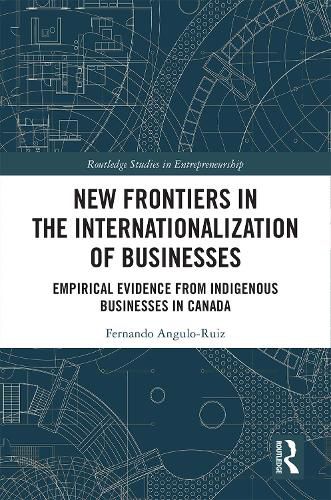Readings Newsletter
Become a Readings Member to make your shopping experience even easier.
Sign in or sign up for free!
You’re not far away from qualifying for FREE standard shipping within Australia
You’ve qualified for FREE standard shipping within Australia
The cart is loading…






New Frontiers in the Internationalization of Businesses: Empirical Evidence from Indigenous Businesses in Canada highlights the impact of international expansion as a potential pathway to address the challenges of poverty and vulnerability, and provide relevant new knowledge on the factors that support successful international expansion of Indigenous businesses. This book examines how entrepreneur’s identity and cultural values, network ties, motivations, and resources and capabilities facilitate or hinder the internationalization of Indigenous businesses. This book also investigates the economic and non-economic outcomes of internationalization. Most interestingly, this book answers the question of what is so new about the internationalization of Indigenous businesses by comparing this context to mainstream (non-Indigenous) businesses. The book also delves in the phenomena related to home-based businesses, service industries, and specific ethnic groups. This book has implications for vulnerable populations, especially those more than 370 million indigenous people spread across 70 countries worldwide.
Studying those Indigenous businesses that decide to pursue international opportunities and how they become successful in international markets is a timely and novel area of research. Understanding this context contributes to current debates in international business.
$9.00 standard shipping within Australia
FREE standard shipping within Australia for orders over $100.00
Express & International shipping calculated at checkout
New Frontiers in the Internationalization of Businesses: Empirical Evidence from Indigenous Businesses in Canada highlights the impact of international expansion as a potential pathway to address the challenges of poverty and vulnerability, and provide relevant new knowledge on the factors that support successful international expansion of Indigenous businesses. This book examines how entrepreneur’s identity and cultural values, network ties, motivations, and resources and capabilities facilitate or hinder the internationalization of Indigenous businesses. This book also investigates the economic and non-economic outcomes of internationalization. Most interestingly, this book answers the question of what is so new about the internationalization of Indigenous businesses by comparing this context to mainstream (non-Indigenous) businesses. The book also delves in the phenomena related to home-based businesses, service industries, and specific ethnic groups. This book has implications for vulnerable populations, especially those more than 370 million indigenous people spread across 70 countries worldwide.
Studying those Indigenous businesses that decide to pursue international opportunities and how they become successful in international markets is a timely and novel area of research. Understanding this context contributes to current debates in international business.